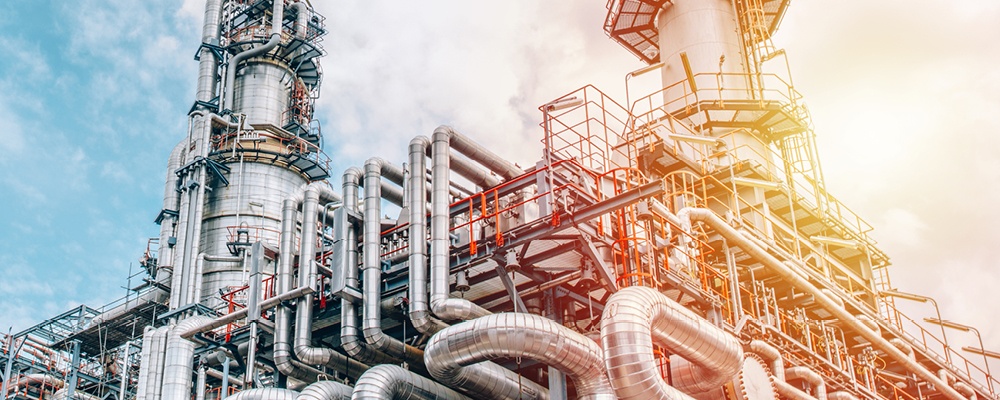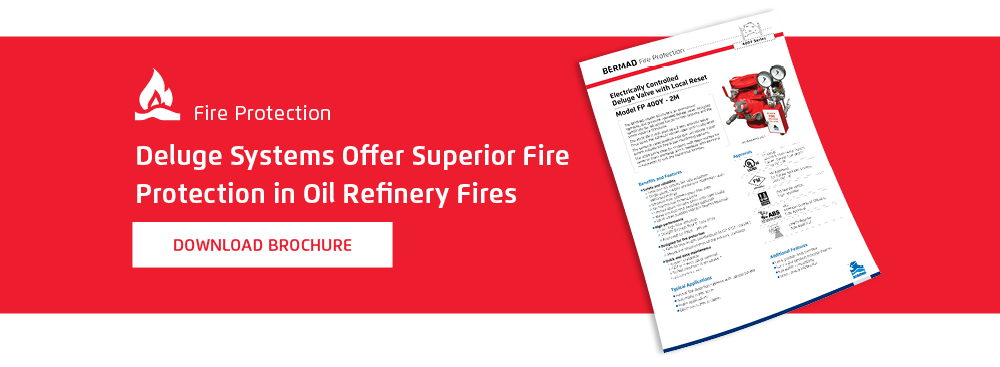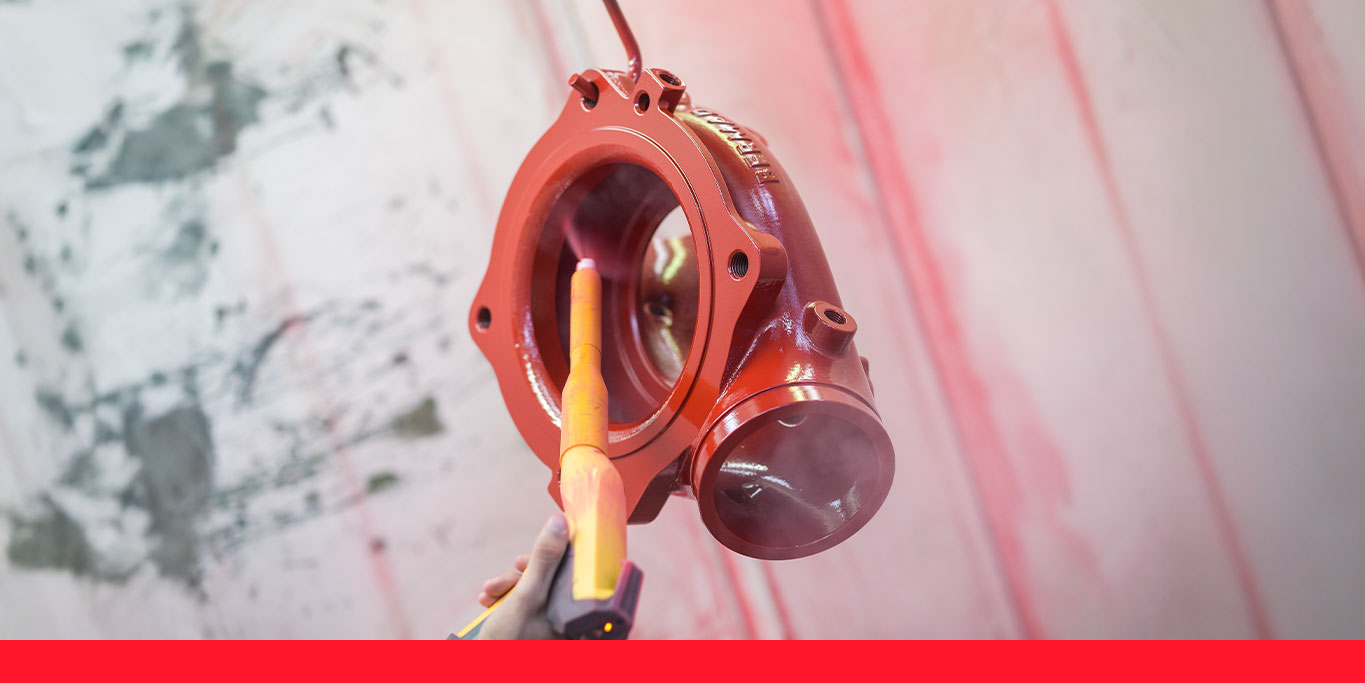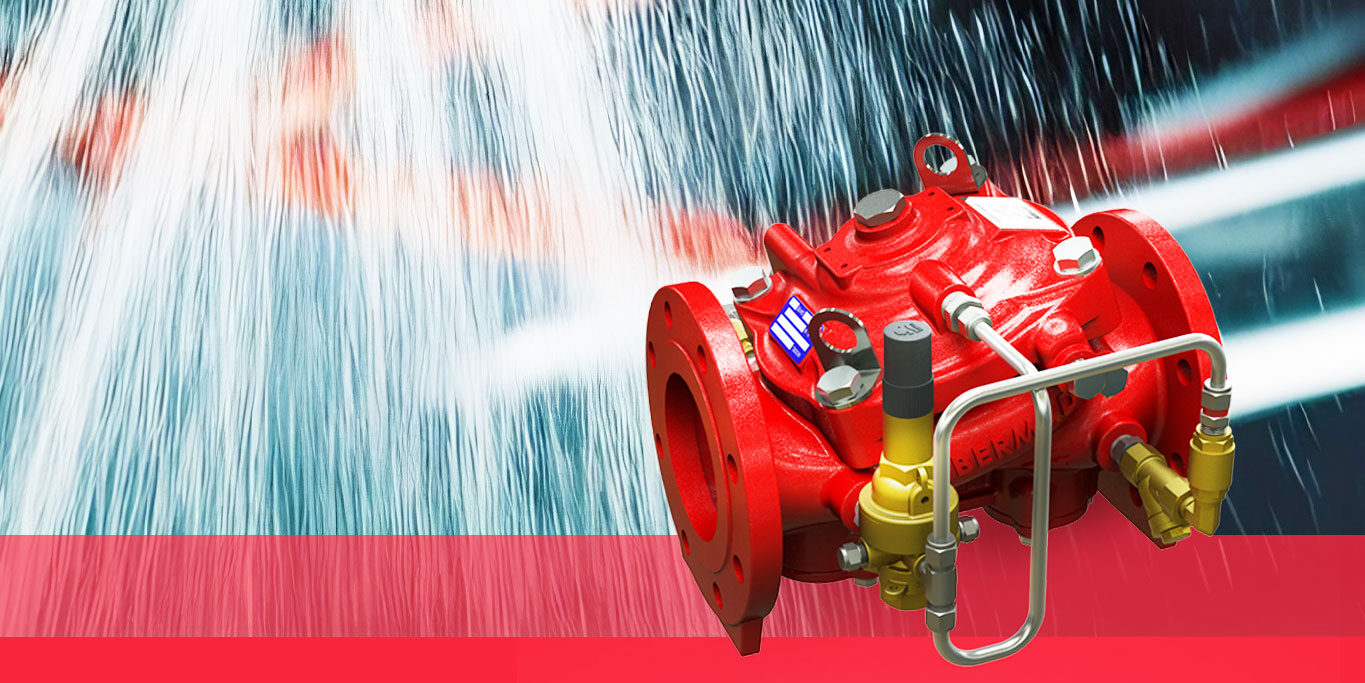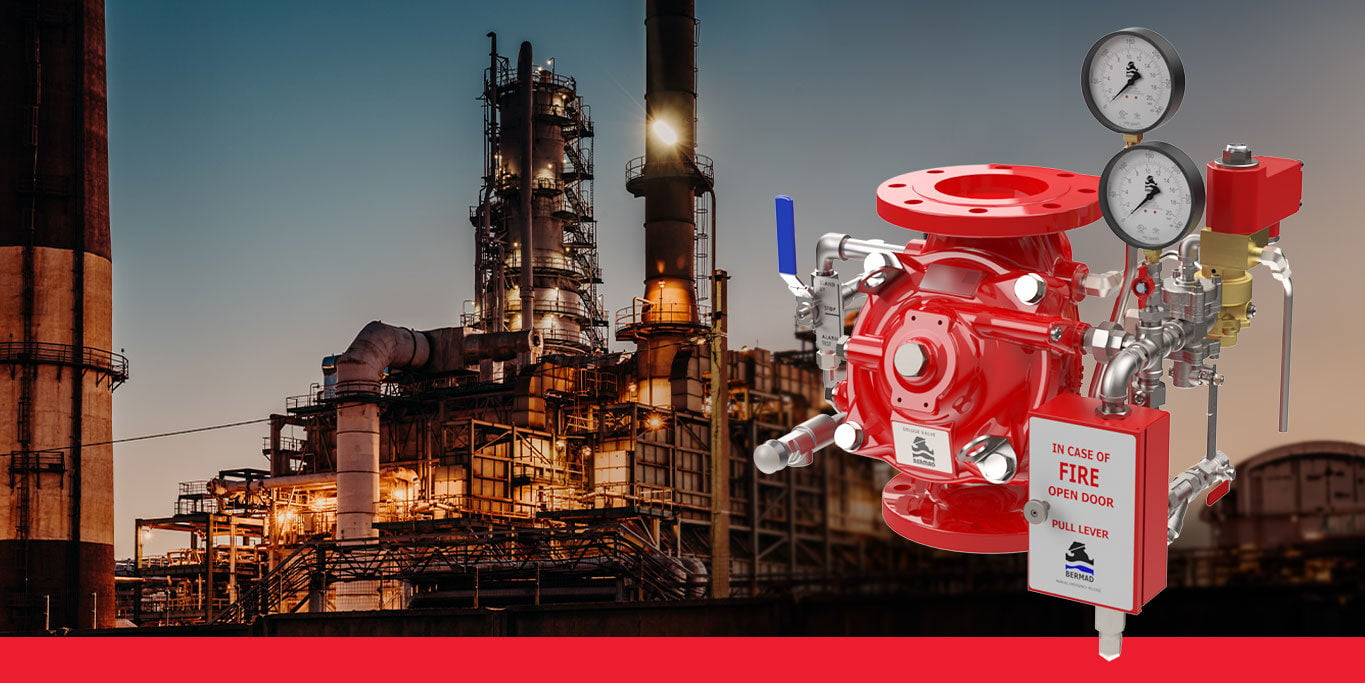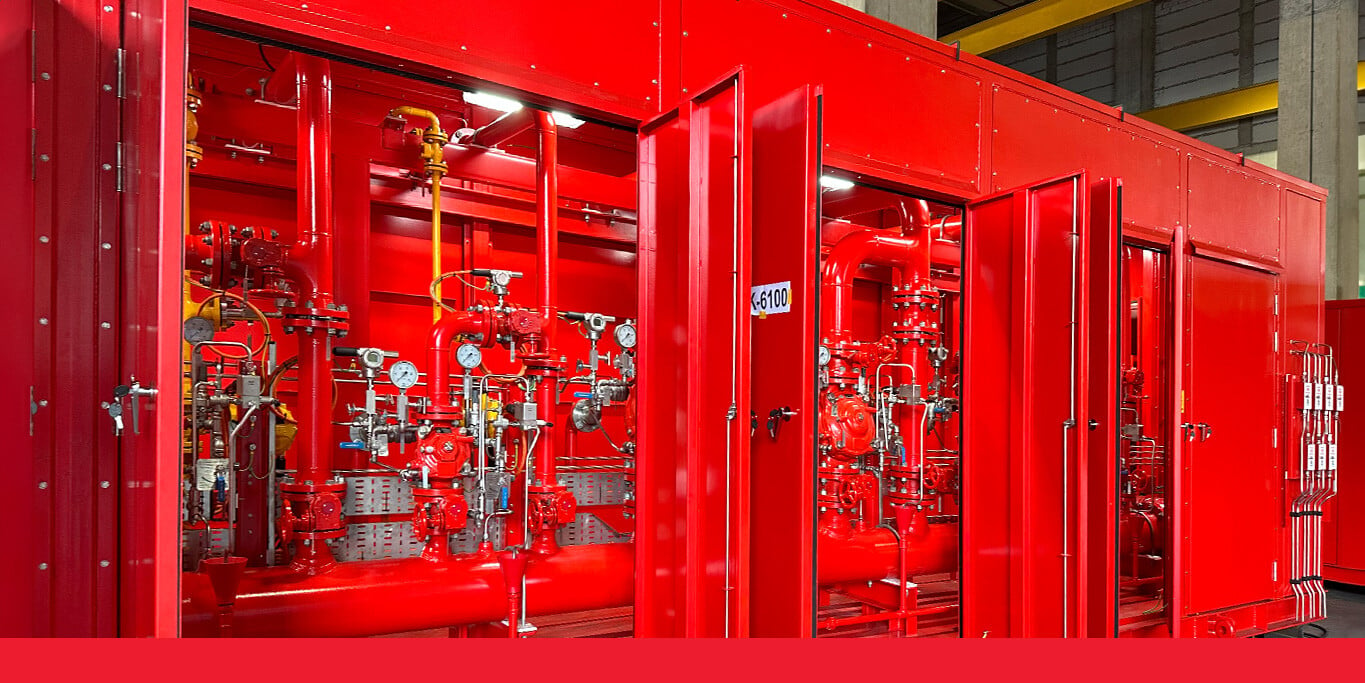The oil industry plays a significant role in our everyday lives, powering our vehicles and providing asphalt for the roads we drive on as well as the raw material for almost all types of plastics. Currently, the global current demand for oil averages 98.51 million barrels per day (mbd), which represents approximately $6.8 billion (in US dollars) in daily economic activity worldwide.
Considering that a large petroleum refinery can process as much as 800,000 to 900,000 barrels per day, the cost of a single refinery fire can be devastating, potentially reaching more than $60 million in economic losses for every day production is interrupted.
<< Learn more about BERMAD Torrent Deluge Valves >>
Refinery processes rely on high pressures and temperatures, and many of the products they produce are highly flammable and/or combustible, making fire one of the greatest risks a refinery faces on a day-to-day basis.
Modern refineries are designed to minimize this risk with fire protection that typically includes a deluge sprinkler system. Deluge systems are particularly well suited to fire protection in oil refineries because they can release large amounts of water in a very short time, which helps to quickly extinguish a fire before it can spread to other areas of the refinery.
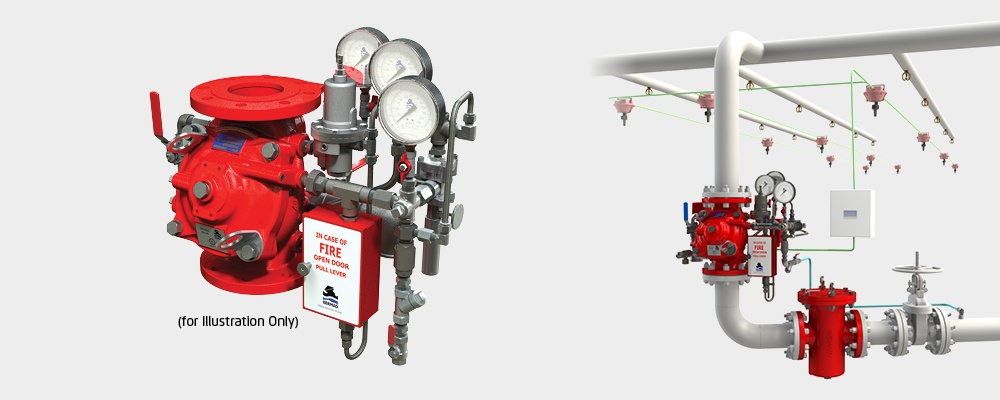
Deluge systems are composed of open sprinklers attached to a piping system to release water or other extinguishing materials through a heat-responsive valve when triggered. Water deluge systems are the most common type of deluge system used in oil refineries today.
Currently, there are no specialized standards for fire protection in refineries. However, the American Petroleum Institute (API) has developed a number of guidelines to provide the basis for the design of fire detection and extinction systems in oil refineries. And, the National Fire Protection Association (NFPA) provides a set of requirements applicable to deluge systems installed in most U.S. refineries. In addition, oil companies worldwide and some engineering firms have developed their own guidelines and standards in order to keep their facilities safe.
Deluge Valves – The Most Critical Component of the Deluge System
The deluge valve is the most important component of the deluge system because the entire system depends on its ability to open quickly to release the water needed to extinguish a fire in the area it is designed to protect.
In a refinery, deluge valves may be controlled automatically or remotely and are typically installed to protect storage tanks, pump houses, process facilities, transformers, and other fire risk zones. When selecting the proper deluge valve, there are a number of factors to consider, including:
- The setting in which the sprinklers will be installed – it is important to select a valve that will stand up to the kinds of harsh or corrosive effects of fluids commonly found in oil refinery environments, which can include seawater, UV light and other corrosive elements that may come into contact with the surface of the valve.
- The construction of the valve – deluge valves remain pressurized at all time, making it critical for the valve to be capable of withstanding continuous pressure during long periods of dormancy yet able to provide reliable, fail-safe opening and unobstructed flow, even under harsh conditions.
- Pressure and flow control – different fire risk zones will have different requirements when it comes to the pressure and flow of extinguishing materials. Therefore, a deluge valve that offers the ability to control the desired system flow and pressure for each area will provide a more reliable and effective protection across the whole system.
- The type of materials being used/stored in the area – an extinguishing agent must be carefully selected to fit the specific flammable materials. Likewise, the valve chosen must be suitable for the type of extinguishing agent needed for the area to be protected.
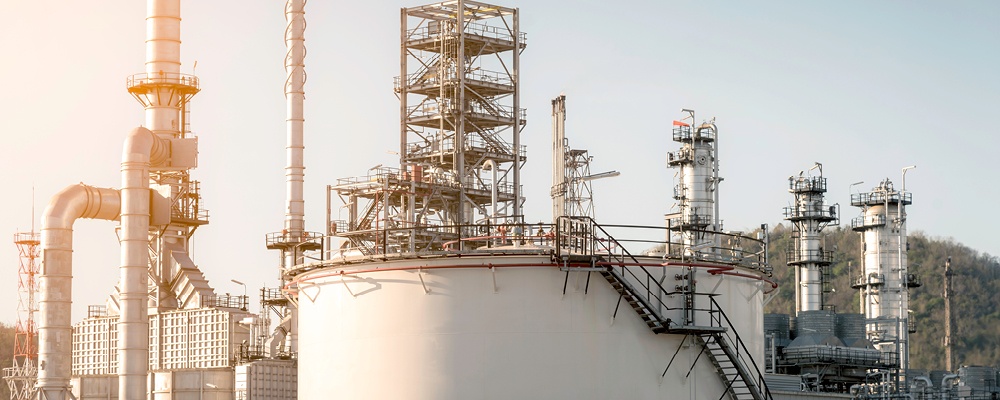
Fire is a constant and significant risk in oil refineries –one that demands effective fire protection system. Oil refinery fires can spread very quickly, triggering explosions throughout the facility – a failure in the performance of even a single deluge valve can quickly become catastrophic, underscoring the importance of choosing the right valve for the job.
BERMAD provides comprehensive customized solutions for fire protection systems in refineries and other types of petrochemical plants, including both onshore and offshore operations. Contact BERMAD today to find the right deluge valve for your specific needs.

